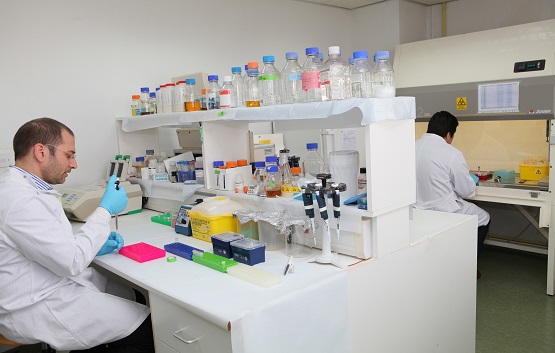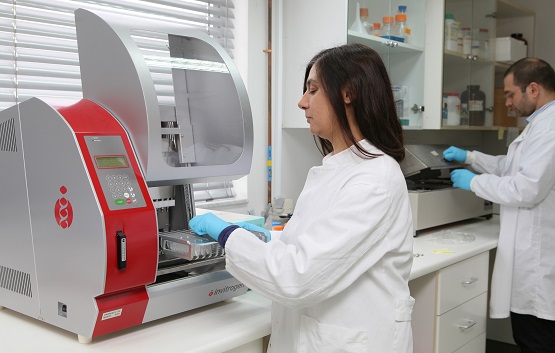Molecular Virology Department
Overview
The Department of Molecular Virology was established in 1995 with the aim to establish serological and molecular methods for specific and accurate diagnosis of viral infections. Today, the department provides qualitative and quantitative diagnostic tests for more than 30 viruses including Herpesviruses, enteroviruses, adenoviruses, parvoviruses, Hepatitis B virus, Hepatitis C virus, BK virus and respiratory viruses causing clinical symptoms in children, immunosuppressed patients, pregnant women etc. We also provide test for detection of Human Papillomaviruses in gynaecological and other samples with the ability to determine almost any HPV type present in the sample, including multiple infections. Every year, more than one thousand samples are analysed for the presence of antiviral antibodies and viral genomes. In addition, the department responds to challenges posed by emerging pathogens such as MERS coronavirus, Ebolavirus or Zikavirus by providing rapidly the necessary diagnostic tests supporting public health services. In 2014, the department was accredited with ISO15189.
Our Department is the Reference Laboratory for the Detection and Surveillance of enteroviruses since 1996. Routinely and in emergency cases, we are able to detect and type enteroviruses circulating in the population in order to prevent epidemics. Regarding research, we focus on the role of viruses in neurological syndromes with emphasis on herpesviruses in the onset and progression of MS as well as epidemiological studies.
The department offers the course Molecular Virology and Immunology at Cyprus School of Molecular Medicine covering the main topics in the fields of Virology and Immunology. In addition, MSc and PhD students are supervised conducting their research project at our department.
Human Papilloma Virus Test as a tool for cervical cancer prevention
Click here to download the full article.









0002.jpg)
